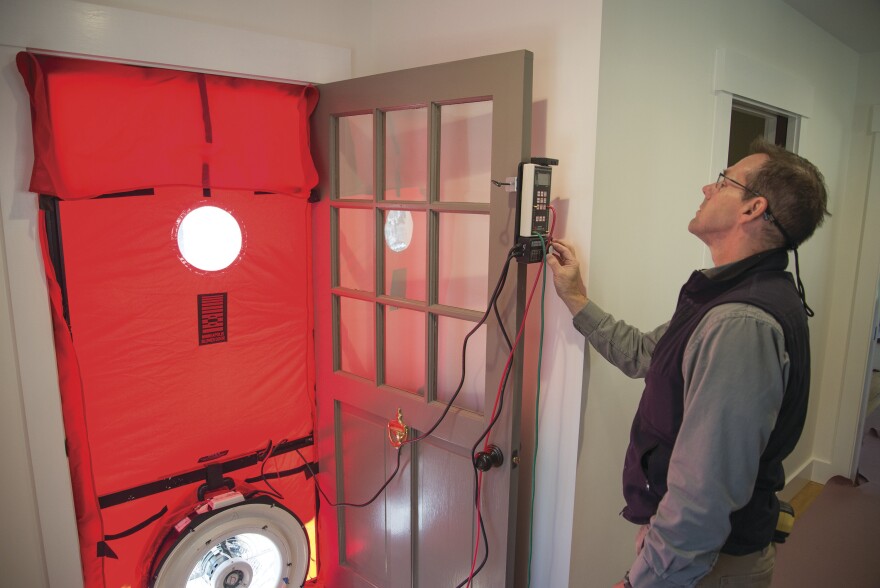A new federal report shows New Hampshire lost nearly 2,000 energy sector jobs during the pandemic – most of them in energy efficiency fields.
The report said energy employers in New Hampshire are more optimistic than most about restoring those jobs in the coming year, but the efficiency sector is still concerned that an ongoing regulatory delay in the state could hold them back.
On a virtual roundtable Monday with U.S. Energy Secretary Jennifer Granholm, New Hampshire Sen. Jeanne Shaheen said the new report will help policymakers get the most out of trillions of dollars in proposed federal infrastructure and climate change investments.
“We’ve got to make these changes that allow us to be competitive and also allow us to address the changes that we’re seeing in our climate,” Shaheen, a Democrat, said.
The report comes amid historic flooding in Germany, a record-shattering heat wave in the Pacific Northwest and other signs of climate change around the world, including in New Hampshire.
According to the International Energy Agency, it will take $4 trillion a year in global climate investments through 2030, including in the renewable energy transition, in order to reach net-zero emissions by mid-century and avert future cataclysmic effects.

Here are three big findings from the new federal report about how that transition is affecting energy jobs in New Hampshire and nationwide:
1. New Hampshire lost a lot of energy efficiency jobs during the pandemic. Now, the sector says a state regulatory delay is hurting them more.
More than 10,800 people worked in energy efficiency jobs in New Hampshire at the end of 2020 – a drop of 9% from 2019. That sector still accounts for more jobs than all other electric power fields in the state combined, including generation, fuels, transmission, distribution and storage.
Most of the state’s energy efficiency jobs relate to ventilation, renewable heating and cooling, or efficient lighting and appliances. Advocates for the sector attributed some of their job losses to the time it took to find COVID-safe workarounds for their most hands-on projects, like weatherizing homes and retrofitting HVAC systems.
But they’re also increasingly worried about a delay in updating a key state program that sets energy efficiency savings goals, through the consumer and business programs of NHSaves and the typically very small ratepayer fees that pay for them.
The Public Utilities Commission (PUC) was supposed to rule in February on a regular expansion of these goals for 2021-23, but they put off the decision after political debate late last year.
There’s now no timeline for a ruling, and the 2020 rates are in place indefinitely.
Utilities and efficiency contractors say those rates have not turned out to be enough to even cover last year’s savings goals. Amid the uncertainty with the PUC, they’ve begun waitlisting all customers interested in certain weatherization programs, and put off other initiatives proposed in the delayed three-year plan, according to an update filed in June.
2. Renewable technologies employ nearly twice as many people in New Hampshire as fossil fuels, and the solar sector lost fewer jobs than fossil fuels did during the pandemic.
At the end of 2020, New Hampshire had 2,773 jobs in wind, hydroelectric and solar power, compared to 1,471 in oil, natural gas, coal and other petroleum products. Nuclear, biomass and other fuels came third with 1,383 jobs total.

Solar is now the state’s top employer among individual electric generation technologies, accounting for nearly as many jobs on its own as the entire fossil fuel sector. Solar also fared a little better during the pandemic than fossil fuels, shedding 6.5% of its jobs compared to fossil fuels’ 9.4%.
New England gets about half of its electricity from natural gas and the next biggest share from its two remaining nuclear plants, in New Hampshire and Connecticut. But oil and petroleum make up the biggest share of New Hampshire’s fuel-related jobs.
The state’s top fuel-related profession is trade – such as a heating oil distributor. The state and region are more reliant on heating oil than most other parts of the country.
Nationwide, oil, gas and coal saw the greatest proportion of fuel job losses during the pandemic. Wind jobs were the only electric generation sector that gained jobs in that time, adding 2,000 positions from 2019 to 2020.
3. New Hampshire is more optimistic than the nation at large for job growth in most energy fields in the coming year.
Nearly 90% of energy employers in the state said they've had trouble hiring in the past year. But they hope that will change. The state's electric power sector expects to grow by nearly 23% in the next 12 months. The energy efficiency sector expects to grow by 5.3%, and fuel jobs are expected to increase by 5.9%.
The nationwide outlook is about twice that optimistic for energy efficiency jobs, but projects only 12% growth for other electric power fields.
Advocates emphasize that these are good-paying jobs, with a median wage in New Hampshire of $26 an hour, 37% more than the nationwide median and 21% more than the state's.
Nationally, the report says the energy sector continues to lag on diversity – though more wind and solar jobs are racially diverse, unionized and held by veterans than the national average.
“We also have a lot of work to do in making our energy sector look like America, and to make sure these new clean energy jobs are paying family-sustaining wages, with good benefits and union memberships,” Granholm, the Biden administration’s energy secretary, said on Monday.








